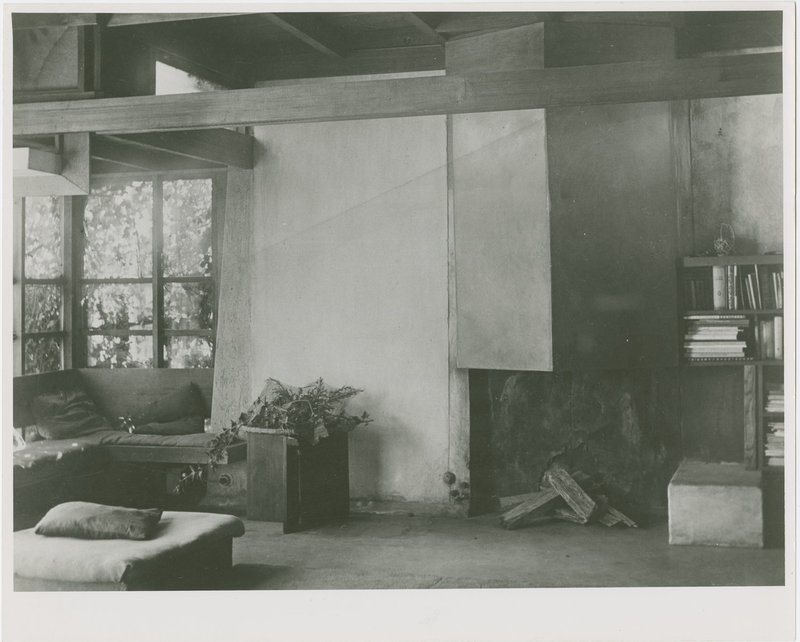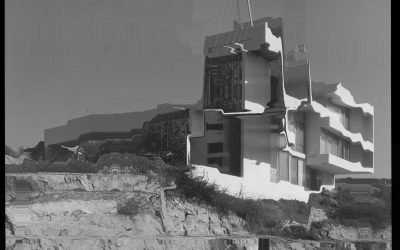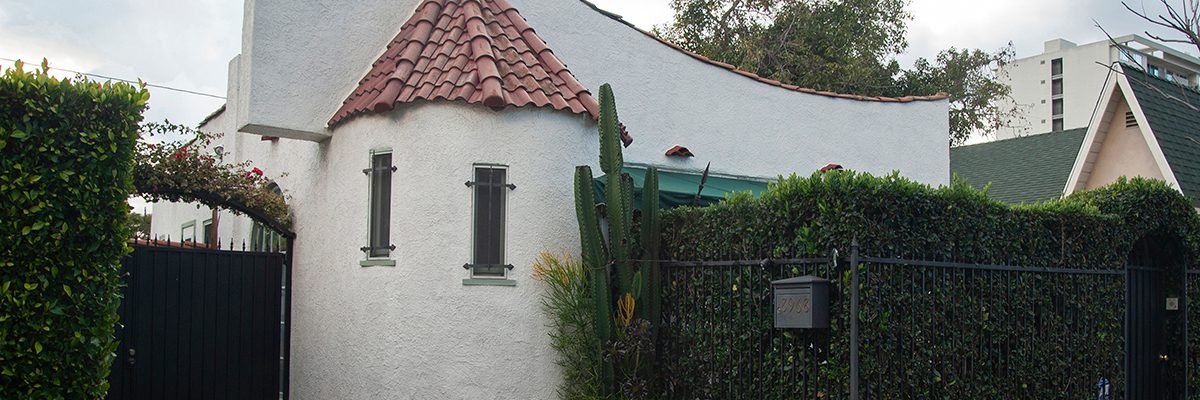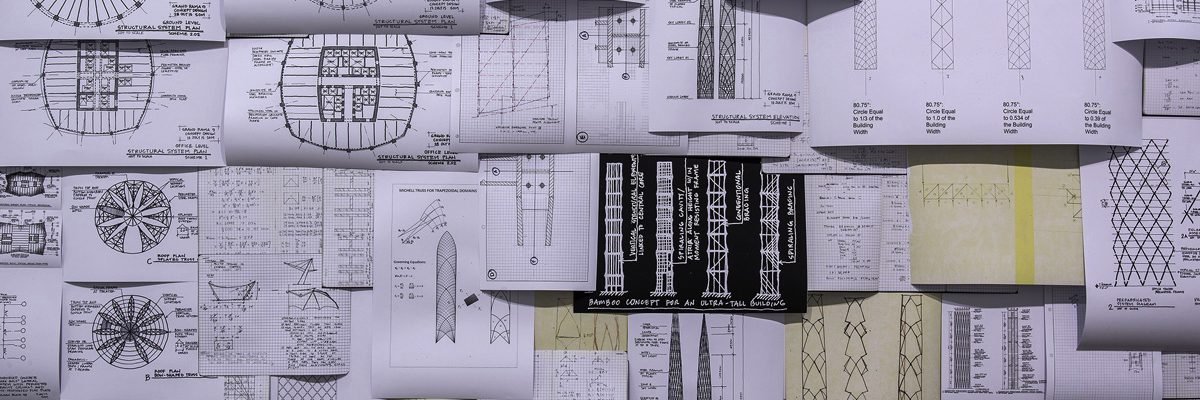
Imaging the Schindler House
Bringing together three prominent Los Angeles architectural photographers, the evening conversation will feature 20 minutes presentations of photographic projects related to the Schindler House.

Schindler and the Early Use of Concrete in Southern California
A conversation with Kenneth A. Breisch, Ann Harrer P.E, Susan Macdonald, moderated by Chandler McCoy

No Less Than The First Modern House To Be Brought Into This World
Things are moving. Yesterday’s avant-garde quickly becomes today’s tired establishment. In confrontation of this fact, Peter Noever joins Eric O. Moss in conversation.

Exhibition Making in the Modern House
As one of the earliest modernist house to invite contemporary art and architectural interventions into its home, the Schindler House has served as an exhibitionary model for a generation of cultural practitioners working to enliven domestic modernist sites. Exhibition-Making in the Modern House brings together former MAK Center director Kimberli Meyer and architecture curator and theorist Sylvia Lavin in dialogue on the opportunities, tensions, and contradictions that attend to exhibition-making in the modernist house. The discussion will draw from past projects while engaging with contemporary questions on the house as a system of display.
KIMBERLI MEYER
Kimberli Meyer is an independent cultural producer, curator, writer, and designer working across the fields of art and architecture. Meyer was director of University Art Museum at CSU Long Beach from 2016-2018, and director of the MAK Center for Art and Architecture, Los Angeles, at the Schindler House, from 2002-2016.
Sylvia lavin
Sylvia Lavin is a critic, curator, historian and theorist whose work explores the limits of architecture across a wide spectrum of historical periods. Past exhibitions Architecture Itself and Other Postmodernization Effects, Everything Loose Will Land: 1970s Art and Architecture in Los Angeles and The Duck and the Document: True Stories of Postmodern Procedures.
Related
Exhibition

Philosophy Dialogues: Robin Mackay
As automation and data-fueled technologies reconfigure lived experience, what new forms of sensing emerge? What kinds of relationships between human and machine sense arise? And what does it mean for artists and theorists to intervene within these aesthetic transformations? This lecture series gathers five contemporary thinkers from different theoretical orientations to investigate the capacities of art and technology to shape alternative worlds of sense and sense-making.

Philosophy Dialogues: Wendy Hui Kyong Chun
As automation and data-fueled technologies reconfigure lived experience, what new forms of sensing emerge? What kinds of relationships between human and machine sense arise? And what does it mean for artists and theorists to intervene within these aesthetic transformations? This lecture series gathers five contemporary thinkers from different theoretical orientations to investigate the capacities of art and technology to shape alternative worlds of sense and sense-making.

Philosophy Dialogues: Gabriel Rockhill, Roy Ben-Shai
As automation and data-fueled technologies reconfigure lived experience, what new forms of sensing emerge? What kinds of relationships between human and machine sense arise? And what does it mean for artists and theorists to intervene within these aesthetic transformations? This lecture series gathers five contemporary thinkers from different theoretical orientations to investigate the capacities of art and technology to shape alternative worlds of sense and sense-making.

Autonomous Design: Tentative Concrete: Artist Talk
The MAK Center for Art and Architecture is pleased to present an artist talk between participating artist duos from the exhibition Autonomous Design: Cecilie Bendixen and Sophus Ejler Jepsen, and Casey Baden and Kenneth Yuen of Full Service Creative, moderated by Director Jia Yi Gu.

DEMO: Artist Talk
An online panel discussion between the artists of DEMO and curator Anthony Carfello. Nazgol Ansarinia, Margarethe Drexel, Lexis-Olivier Ray, and Yan Tomaszewski share their artwork in the context of the exhibition DEMO, on view now at the MAK Center at the Schindler House.

Soft Schindler: On Exchange and Other Balacing Acts: Panel Discussion
Chilean curators and designers Pedro Ignacio Alonso and Hugo Palmarola join SCI-Arc faculty members Marrikka Trotter (History + Theory Coordinator) and Marcelyn Gow (MS Design Theory and Pedagogy Coordinator) in conversation about the role of cultural and material exchange in architectural history, curation, and design. In 2014, Alonso and Palmarola were awarded the Silver Lion 14th Venice Architecture Biennale for Chile Pavilion, Monolith Controversies. Choreographies, their video diptych that looks at the representation of building construction across the US-Soviet divide, is included in Soft Schindler, now on view at the MAK Center for Art and Architecture. Moderated by Soft Schindler curator and SCI-Arc faculty member and Alumna Mimi Zeiger (M.Arch, ’98).

Resident Alien: Panel Discussion
The Austrian Consulate General and MAK Center Los Angeles will be hosting a reception, presentation, and panel discussion on Friday November 22nd from 5:30pm to 8:00pm in celebration of the ongoing exhibition at the Austrian Cultural Forum New York titled Resident Alien: Austrian Architects in America curated by Cal Poly professors Stephen Phillips (SPARCHS) and Axel Schmitzberger (Domaen).

Tales of The Floating Class: Publication Launch and Panel Discussion
Norman Klein‘s new collection of essays, Tales of the Floating Class, reveals shared ironies in the arts and urban culture over the past fifty years. It studies the amnesiac effects of globalization upon the narrative structure of television, video, animation, photography and installation art, as well as the shapeshifting that has overwhelmed cities and entertainment spaces. Using Los Angeles and the West as one focal point, various case studies trace the growth of the Floating Class, an expression from the late nineteenth century referring to the outliers who would mill around city parks, crowding the rallies, while listening to rabble-rousing public speakers. These sites were also known as “bughouse squares,” because they sponsored extreme haranguing of all sorts. In earlier centuries, many had been fairgrounds for vendors selling artisanal goods. After 1850, they became a sounding board for the new city, even for avant-garde movements across the arts. Today, the Floating Class exists more internally, for example, in vigilante social networks. Its precarious numbers have grown a hundred-fold. They suffer the mad indignities of a gig economy, and neo-feudal indenture. They try not to feel caught like wild salmon in Trump’s hair. Klein writes in comic flourishes that layer fact and fiction. That is because the line between the real and the imaginary has radically blurred, inside the comic picaresque that defines our history today. Featured are twenty-two essays and fictions that have been reedited from their original published version.

Revisiting Charles Jencks’ Daydream Houses of Los Angeles: Panel Discussion
In the 1970s, architectural historian and cultural theorist Charles Jencks began photographing the exaggerated houses that he encountered driving around Los Angeles, including West Hollywood. At a time when residential architecture in America was becoming increasingly standardized, he called attention to these fantasy houses that had been modified or built to exude personal character and variation.
Daydream Houses of Los Angeles, published by Rizzoli in 1978, includes Jencks’ snapshots of about 60 of these expressive and excessive houses, paired with witty captions and oftentimes an address, so readers could embark on their own house tours.
In this illustrated presentation, a collaboration with the Southland Institute, Aurora Tang will discuss her ongoing rephotography project revisiting Daydream Houses of Los Angeles, considering the informal photograph, the enthusiast, the tour, the changing appearance of our city’s residential neighborhoods, and the significance of Jencks’ book today, over 40 years after its release.

Mies Van de Rohe’s Tugendhat Villa: Panel Discussion
Mies Van der Rohe’s Tugendhat Villa in Brno, Czech Republic, is a modernist icon and a preeminent example of a very early and remarkably innovative modernist design. The Tugendhat Villa was completed in 1930 and designed at the same time as the Barcelona Pavilion. The Tugendhat Villa shares many important design features with the Pavilion such as a free plan, extensive use of glass and steel, chrome-clad columns, and even an onyx wall. The Tugendhat House was designated as a UNESCO World Heritage Center in 2001 and, after extensive renovation, was re-opened to the public in March 2012.
This event is co-hosted by the MAK Center for Art & Architecture and The American Institute of Architecture, and features an illustrated lecture by art historian Daniela Hammer-Tugendhat, a daughter of the original owners, and her husband, Ivo Hammer, a noted conservator who chaired the international expert commission that consulted on the restoration of the House. The restoration is the subject of a documentary by Dieter Reifarth; brief selections will help illustrate the lecture.

The Architecture of The Unremarkable: Panel Discussion
The Architecture of the Unremarkable is a study of the contradictory ways in which space is constituted by the reciprocal materialization of the law. It aims to question how the spatialization of legal loopholes, as the infinite generator of interpretive arguments, may be used to destabilize the governed structure and resist institutionalization. Organized by the Southland Institute, this lecture focuses on Emamifar’s collaboration with WORKNOT!, a collective of artists and architects dedicated to the representation of life and work of today’s cognitarians. Their project, MOSHA (Framing The Common) centers on the study of the shared space in modern apartment buildings in Iran and the legal regulation of such common spaces.

All The Trees and I Was Still Bowling Alone: Panel Discussion
Artist Dina Abdulkarim, in collaboration with the Southland Institute, will discuss her training in architecture and planning to explore themes of home, citizenship, and identity exchange that she presents in her work. She will focus on the visual and cultural influences that have shaped her appreciation of patterns and the institution of their collective meaning. Abdulkarim will describe how, through distinct architecture and specific interiors, the use of patterns, materials and textures form the shared social aesthetics of the very personal space of the home. She will also speak to the experience of living and studying city planning and urban design in the U.S., and how it added a new set of patterns and meanings to her concept of home. In her large-scale paintings, Abdulkarim overlaps different geometries of arabesque motifs and aerial views of suburban communities to represent the cultural, spiritual, and everyday realities of the places that represent home, going beyond the simple distinction of East and West to be complex, organic, and constantly in flux.

Thea Djordjadze in Conversation with Anthony Carfello and Mimi Zeiger: Panel Discussion
Thea Djordjadze regularly addresses questions of architecture, design and methods of display through installations that combine everyday objects, unconventional substances, and art and industrial materials. Her exhibition at Sprüth Magers—the artist’s first solo exhibition in Los Angeles—extends the artist’s investigations into the legacies of twentieth-century modernism, and the ways in which context affects the viewing, understanding and experience of art.

Celebrating the new Bauhaus publications by Lars Müller Publishers: Publication Launch and Panel Discussion
Join the MAK Center for Art and Architecture for a panel discussion on 100 years of Bauhaus and the legacy of the institution with Michael Boyd (Furniture and Landscape Designer), Mariestella Casciato (Curator of Architecture, Getty Research Institute), Kurt W. Forster (Visiting Professor, Yale School of Architecture), Lars Müller (Designer and Publisher), and Priscilla Fraser (Director, MAK Center for Art & Architecture.)

Paul R. Williams, West Hollywood, and The Spotless Mirror: Panel Discussion
Photographer Janna Ireland, in collaboration with the Southland Institute, discussed intersections of photography, architecture, motherhood, race, domesticity, portraiture, class, and documentation in four bodies of work about Greater Los Angeles.

PER / TRANS: Performing the Cube, Transforming the Cube: Publication Launch and Panel Discussion
During visits to Los Angeles, Sandra Peters became preoccupied with the work of architect R.M. Schindler: from installations that resemble portraits of some individual Schindler houses to a cube structure (Interface No. 1) responding to the bilateral-diagonal roof configuration of the How House (1925), Schindler’s work became the point of departure for the artist’s multifaceted confrontation with the form of the cube that is documented within this publication.

Montage and the Metropolis by Martino Stierli: Publication Launch and Panel Discussion
The MAK Center was pleased to host a book release and panel discussion featuring author Martino Stierli, author and UC Irvine professor Ed Dimendberg, USC associate professor Amy Murphy, art historian and UC Irvine professor Sally Stein, and architectural historian and Carleton University assistant professor Inderbir Riar.

Poetic Structure: Art + Engineering + Architecture: Panel Discussion
Panel discussion with Sharon Johnston, founder and partner of Johnston Marklee; Marc Pally, curator, Art in the Public Realm; Heather Roberge, chair of UCLA’s Department of Architecture and Urban Design; Mark Sarkisian, partner with SOM; and José Luis Palacios, design director with SOM.
Brett Steele, dean of the UCLA School of the Arts and Architecture, will moderate the panel.

Modernism in South East Europe: Panel Discussion
SEEfest 2018 payed homage to an exciting era of early 20th century and the abundance and excitement of artistic life in the territories then part of Austria-Hungary. Following a brief introduction on modernism and a clip from the Neutra documentary, the conversation with guest filmmakers explored connections between their work and architectural heritage of the two Austrian architects in Southern California, and what new perspective will these two upcoming films bring to the way we view the men who created it, and the larger legacy of the times they lived in.
With: Svetlana Kasalovic, professor of design and multimedia at Moorpark College; and Valentina Ganeva and PJ Letofsky, two filmmakers of upcoming documentary films about Austrian architects Rudolph Schindler, and Richard Neutra. Moderated by Vera Mijojlic, SEEfest director.

The Conscientious Objector: Todd Gray in conversation with Anthea Hamilton
Todd Gray in conversation with Anthea Hamilton

The Conscientious Objector: Rosalind Nashashibi in conversation with Mathias Poledna
Rosalind Nashashibi in conversation with Mathias Poledna

The Conscientious Objector: Mohamed Bourouissa in conversation with Negar Azimi
Mohamed Bourouissa in conversation with Negar Azimi

Launch of Art Los Angeles Reader: Publication Launch and Panel Discussion
A panel discussion and launch of the Art Los Angeles Reader’s fourth issue: a special collaboration with Mexico City’s Terremoto in honor of Pacific Standard Time LA/LA.

How to Read El Pato Pascual: Publication Launch and Panel Discussion
Panel discussion with Fabián Cereijido, Jesse Lerner, Rubén Ortiz-Torres, and Angela Vergara, moderated by Jessica Ceballos y Campbell to celebrate the book launch of How To Read El Pato Pascual: Disney’s Latin America and Latin America’s Disney

Elastic Architecture: Frederick Kiesler and Design Research in the First Age of Robotic Culture: Publication Launch and Panel Discussion
Reception, Interdisciplinary Panel Discussion with Presentations, and Book Launch with Annie Chu, Joe Day, Tom Gunning, Julia Koerner, Jimenez Lai, Priscilla Fraser, and Stephen Phillips

Routine Pleasures: Publication Launch and Panel Discussion
Routine Pleasures was an exhibition at the Schindler House this past summer that brought together artists working in a variety of media to explore “the termite tendency,” a concept introduced by artist and film critic Manny Farber (1917–2008) in his 1962 essay “White Elephant Art vs. Termite Art.” Whereas the original essay applied these labels to the work of filmmakers, exhibition organizer Michael Ned Holte found manifold parallels in contemporary art.
